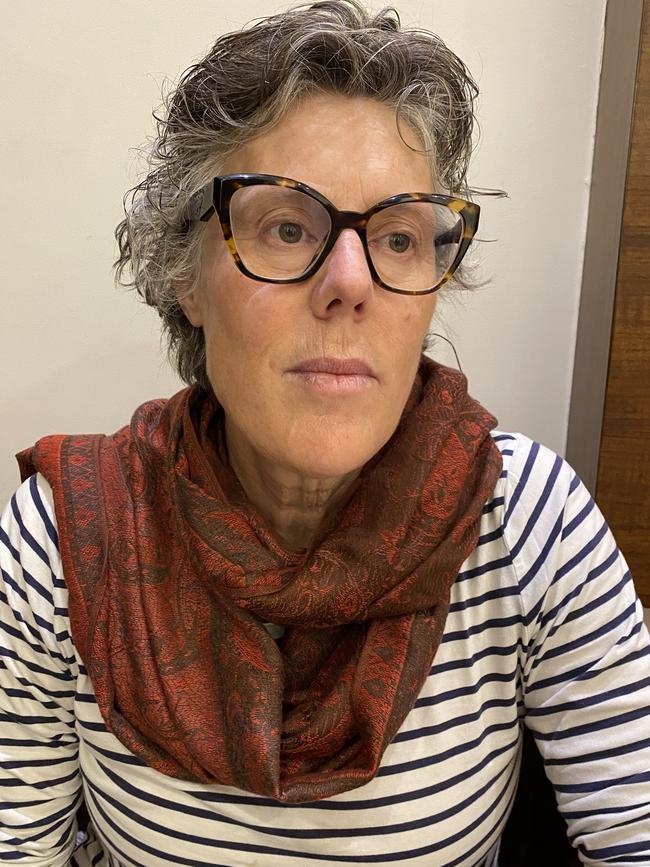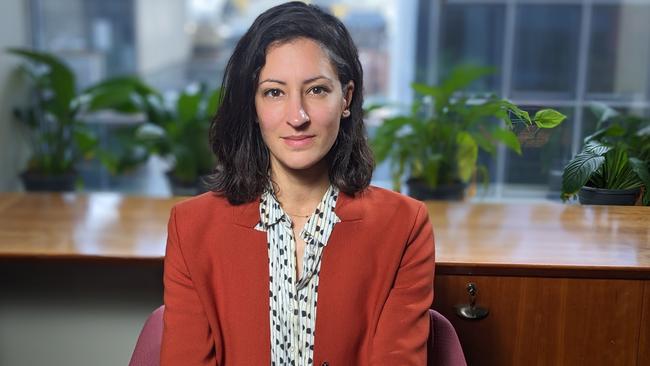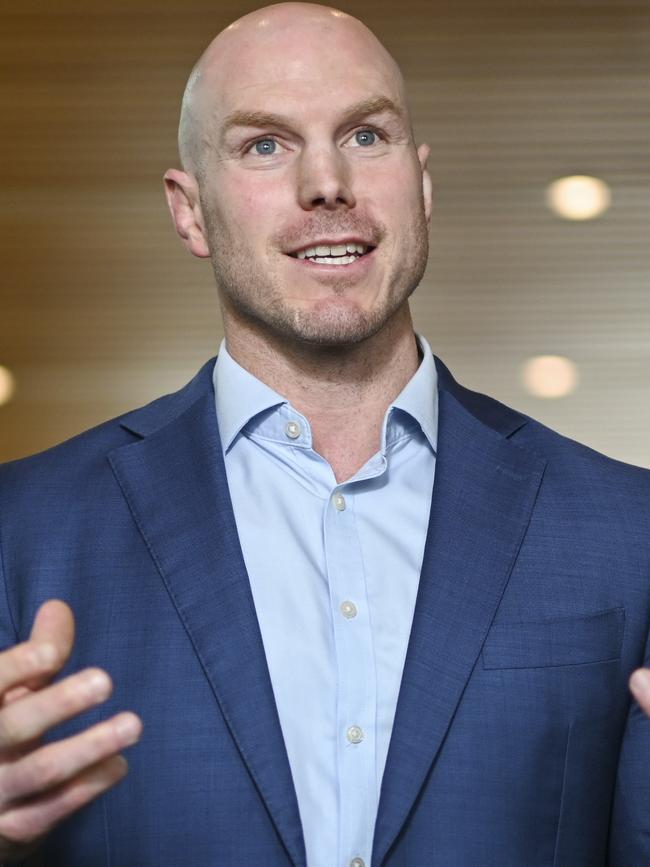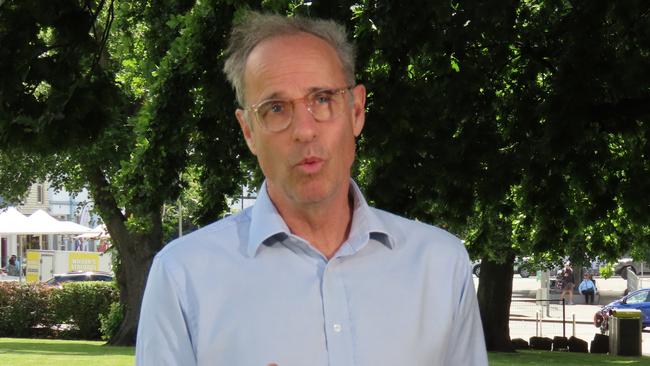Australia has become a lucrative honeypot for scammers in a scourge that is costing Aussies billions of dollars a year. A news.com.au special investigation has found in most cases the scammers could have been stopped.
When the bank phoned Danny McIver after $70,000 had already been drained from his bank account, little did he know his nightmare had only just begun.
The Vietnam War veteran has been reduced to tears daily knowing his life savings are gone, while he battles with Bendigo Bank for reimbursement of the stolen funds.
The money came from a life insurance payout after the death of his son Robert, who he tragically lost just two weeks after his daughter Sharon succumbed to motor neurone disease.
“It broke my heart,” Mr McIver told news.com.au through tears.
“And I haven’t been the same since the scam because it’s just made my health just so much worse.
“Every day has been a real grind and this is on my mind 24 hours a day.”
Mr McIver is one of hundreds of thousands of Australians caught out by devastating inaction on scams, which has made Australia the world’s honeypot for scammers, with latest figures showing Aussies lost $2.74 billion in just one year.
That’s why news.com.au is launching People Before Profit, calling on the federal government to make it mandatory for banks to compensate scam victims – just like in the UK.
In October last year, the UK introduced world-leading legislation making compensation mandatory for scam victims within five business days except in cases of gross negligence.
It’s a scheme that some banks had already voluntarily participated in for years and has seen scam losses decrease.
Mr McIver is one of thousands of Aussies who has found himself caught in the centre of the nefarious global scam industry.
The 76-year-old was caught out by a Microsoft impersonation scam in September last year and has been left shocked at what the scammers could do in his bank account with no warnings.
This included new payees being added with no checks and a transfer of $40,000 instantly – something he had never done before.
“I just can’t believe that Bendigo (Bank) took nearly two hours to discover that funds were being taken out of my bank four times. I thought the flags would have been raised very, very early,” Mr McIver said.
A Bendigo Bank spokesperson said they do not comment on specific customer matters but take cyber security, protecting its customers and safeguarding its systems very seriously by using a variety of cybercrime prevention methods.
IT’S TIME BANKS PUT PEOPLE BEFORE PROFIT. SIGN THE PETITION
One of the UK’s top 10 banks called TSB made the decision to refund all innocent victims of scams from 2019.
TSB Bank “recognised that fraud was increasingly complex and households shouldn’t be penalised for scams enabled by social media sites and telephone companies”, its fraud spokesperson Matt Hepburn said.
The bank maintained a rate of refunding in 97 per cent of all cases, he added.
The Australian government claims it’s on track to tackle the billion-dollar issue with its Scam Prevention Framework where banks, social media giants and telcos face fines of up to $50 million if they do not take reasonable steps to prevent, detect, disrupt and respond to scams.
But scam victims, leading consumer groups and politicians have criticised the proposed legislation, arguing it does not go far enough to protect the Australian public.


Harriet Spring was scammed out of a $1.6 million inheritance – due to go to 15 family members – after allegedly being “groomed” by a man claiming to be from a well-known Australian bank offering a term deposit.
She has joined other scam victims to expose the failings of banks, with the group extremely critical of the proposed legislation.
“The governments and banks have basically orchestrated the greatest consumer protection failure in Australian history,” Ms Spring told news.com.au.
“Due to systematic failures of governments and banks and introducing more major players like telco and social media conglomerates, they are stacking the cards even further against consumers and the likelihood of someone getting their money back is getting further and further away.”
She said banks need “skin in the game” to prevent scams.
“Banks haven’t been proven to be in any way on consumers’ sides,” she said.
“Scams are fraud and theft as much as someone holding a gun to someone’s head but the banks are driving away with the money. The banks are the ones that allowed systems to be so weak, that allowed money to be stolen and they are the ones that won’t help victims.
“They have made billions in profits for last 20 years at the expense of consumer protection.
“The government is trying to put in a few hopeless policies that just look as though they are doing something without upsetting the banks.”
Meanwhile, eight Australian consumer groups including Choice, the Consumer Law Action Centre and Financial Counselling Australia have called out the lack of explicit compensation for scam victims within the government’s Scam Prevention Framework as deeply concerning.
The consumer groups argue no obligations to compensate victims will create a “burdensome regime that fails to ensure fair outcomes for scam victims” and fails to “drive industry investment in preventing scams”.
“Over the last few years, our organisations have been contacted by more and more people from across the country who have suffered life-changing losses. Often, victims have nowhere else to turn for support, care, or advice, and they recount terrible experiences of seeking redress when a bank’s system has failed to protect them from a scam,” a submission from the group read.
The collective of consumer groups said they had dealt with Aussies who have had to return to work from parental leave, delay essential surgery, or borrow money from their adult children to buy food.
They had also seen Aussies who defaulted on their mortgages and struggled to pay their children’s school fees.

Yet in Australia, banks are raking in eye-watering profits. The big four banks made a combined $30.7 billion in the 2024 financial year.
Commonwealth Bank topped the list earning a whopping $9.48 billion followed by the National Australia Bank, which scored $7.06 billion in profit. Westpac revealed it had $6.99 billion in profit, followed by ANZ with $6.54 billion.
Consumer Action Law Centre research last year found 75 per cent of Australians believe the government should introduce laws to force banks to refund customers who were victims of a scam.
Meanwhile, a reimbursement scheme was also recommended by the Australian Competition and Consumer Commission as far back as 2020.
Consumer Action Law Centre chief executive Stephanie Tonkin said Australia’s inaction on scams has made us “the world’s honeypot for scammers”.
“We could introduce a world-leading framework that provides the highest incentives on industry to invest in scam prevention and reimburse customers when they get it wrong,” Ms Tonkin told news.com.au.
“We are disappointed this approach is not on the table. But the status quo of industry inaction must urgently change.
“If we take the Government’s Scam Prevention Framework approach, the unacceptable burden on scam victims to fight and prove their case against cashed-up corporations must be removed. Government should introduce a presumption – an automatic right of compensation – if a business fails to meet its obligations under the framework.”
Nationals MP Anne Webster recently fell victim to a sophisticated scam herself – with $9000 fraudulently spent on her credit card – after she attempted to book accommodation through a website she thought was the Hyatt.
She said the scam left her feeling “incredibly vulnerable” particularly as “you don’t know if it’s going to stop”.
Dr Webster claimed there was “no action” from NAB after she approached them multiple times about the matter.
She only received a refund from NAB once she informed the bank she planned to talk about her experience in parliament, she said. However, she added NAB’s response wasn’t right as “not everybody can effectively put pressure on like that”.
Constituents have reached out to her about losing their life savings to scammers, leaving her horrified.


She personally wants to see the UK mandatory reimbursement legislation introduced into Australia to “hold the banks to account” as she doesn’t “buy that banks are doing everything that they can do” to prevent scams.
“What the UK have done in their change of legislation – holding banks to account to pay back 99 per cent of scams – is appropriate, because banks don’t want to do that,” Dr Webster said.
“So they’re going to pull out all the stops to ensure that scams reduce.”
She also said the proposed Scam Prevention Framework does not “have enough teeth”.
“I just don’t think it’s strong enough. And there’s no point doing – in a really crude way — a half arsed piece of legislation that is not going to achieve the outcomes that people are really crying out for,” she said.
NAB’s group investigations executive Chris Sheehan said the bank does not comment on specific cases but makes every attempt to get money back for customers when it is stolen, adding scams and fraud are a global epidemic.

Greens senator Nick McKim said Australia needs to adopt the successful UK model of reimbursement, which ensures that banks initially refund scam victims.
“Labor’s proposed framework is weak and ineffective. It’s designed to protect bank profits rather than benefit consumers,” Senator McKim said.
“The big banks made almost $32 billion in profit last year – they can afford to refund people and then seek to recover costs from other companies like telcos and social media platforms.”
The Green’s economic justice spokesperson added people who have been scammed should not have to face a long, difficult and costly process to recover their own money.
ACT independent senator David Pocock argued the data shows that Australia has become a honeypot for scammers with people paying the price by losing billions every year.
“We urgently need a strong scams protection framework that includes a reimbursement model so Australians aren’t left out of pocket,” Senator Pocock said.
“The bill tabled by the government does not provide strong enough protections for consumers and is tipped too far in favour of the banks.”
But Assistant Treasurer Stephen Jones told news.com.au the government was bringing forward the “toughest legislation in the world”.
He said they were working to ensure “consumers get swift access to justice and that we have all the right incentives in this case to protect their interests”.
The majority of the government’s effort is into prevention so the scam doesn’t happen in the first place, he said.
“It’s always a lot better to prevent a crime happening than to rely on compensation,” he said.
Mr Jones said the framework ensured social media platforms were not let “off the hook” when the tech giants make money out of “false advertising” by distributing scams.
“So we think we’ve got the best approach anywhere in the world around prevention and putting a legal obligation that doesn’t currently exist on banks, telecommunications companies and social media platforms to keep their customers safe,” he said.
He also hit out at claims the government was protecting banks as “absolute rubbish”, while warning the criminals would move to other sectors to perpetrate scams such as insurance and superannuation once the legislation was passed.
An Australian Banking Association spokesperson also weighed into the debate, arguing that unlike the UK, Australia is tackling scams from every angle.
“Our world first approach will ensure all parts of the scams chain are held to account for the actions they take to protect customers,” the spokesperson said.
“Where Australian banks are at fault, they reimburse victims, and that will continue. Focusing liability on one industry, such as banks, doesn’t deal with the core problem of stopping people from being exposed to scams. It won’t hold telecommunication companies or social media platforms to account for the role they play.”
The Scam Prevention Framework has been referred to the Senate Economics Legislation Committee.
sarah.sharples@news.com.au | alex.turner-cohen@news.com.au

Woman’s bizarre sign before $4.2m lotto win
An Aussie who pocketed an enormous multimillion-dollar windfall has credited her win to one strange sign.
‘Are you joking?’: Age gap debate erupts
A real sign that things are changing is the debate over a potential new celebrity couple due to their age gap.